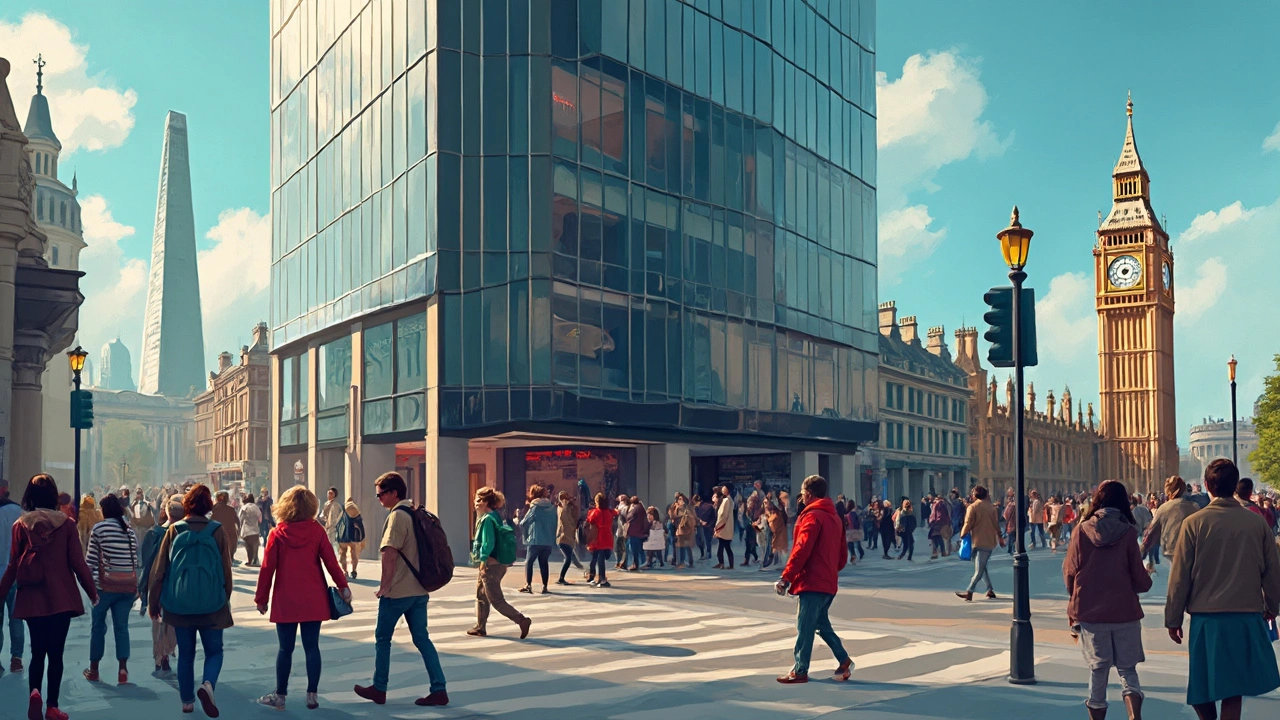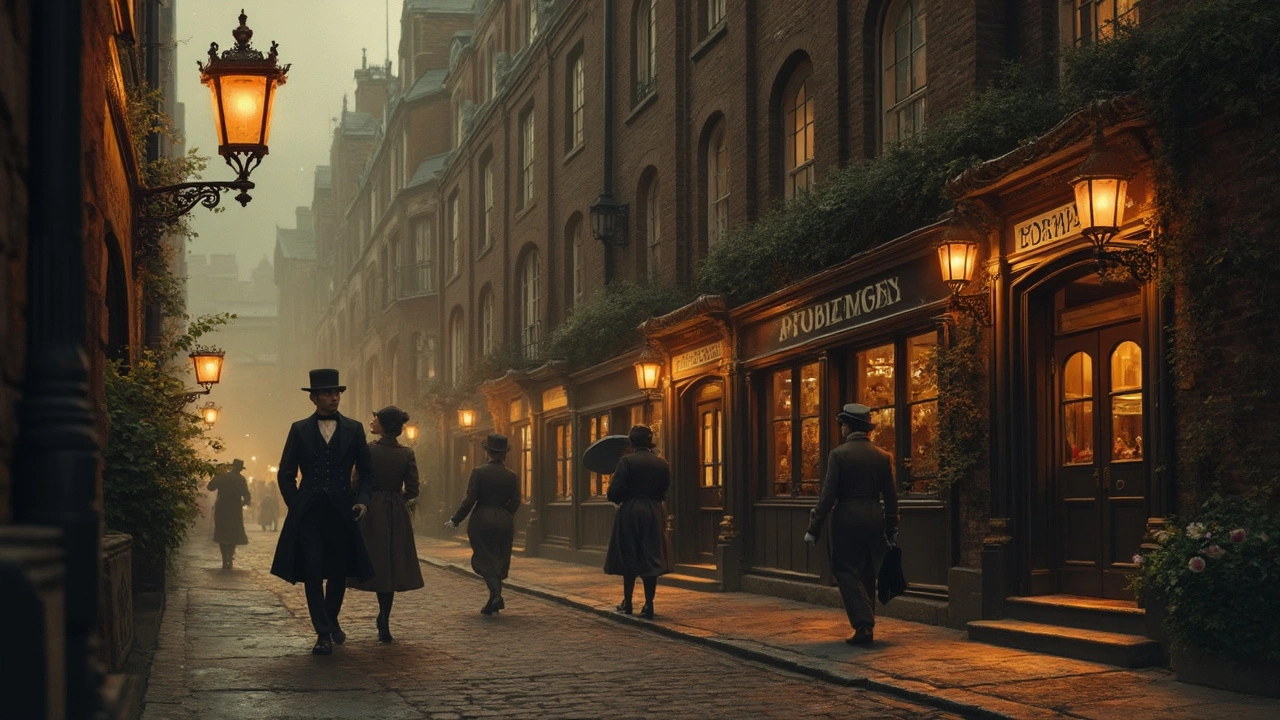London's brothels have always been more than just an underground curiosity—they’re a slice of history peppered with tales that take us from the heart of the city's bustling past right into the present. While you might think of them as a relic of Victorian seedy backstreets, these establishments have a legal and social heartbeat that’s still very much alive.
First things first, it's critical to know the legal lay of the land when diving into this topic. The UK's laws have changed over the years, with various spins and turns in their approach to sex work. The Sale of Sex has never been illegal, but certain activities associated with it can cross the line, like running a brothel. Got you intrigued? Buckle up—we'll get into the nitty-gritty soon.
Despite its controversial nature, sex work in London isn’t hidden away in shadows. There are active communities and organizations advocating for sex workers' rights, ensuring their voices are heard and their safety prioritized. It’s not glamorous or without its risks, but it’s a reality that’s far from the patronizing tropes we often hear.
Historical Background
London's relationship with brothels stretches back hundreds of years, weaving a complex narrative of social norms, economics, and law. In the medieval period, brothels were often tolerated, particularly in areas like Southwark, where they flourished under the watchful eye of the church and local authorities. Strange to think about now, but that's the historical tangling for you.
During the 18th and 19th centuries, brothels became more shadowy affairs, thanks in large part to the morals of the Victorian era. London was a city of stark contrasts, where public virtue clashed with private vice. Nevertheless, a vibrant underground scene persisted, with establishments discreetly providing services to those in the know.
Believe it or not, the famous Directory of Covent Garden Ladies, published in the 18th century, was a guidebook showcasing the profiles of several London sex workers. It was kind of like an early Yelp, offering descriptions and even reviews. People often think today's technology created the first reviews, but human nature's curiosity and need for information have always been around.
Fast forward to the 20th century, and the public discourse around these establishments became louder and more divided. The Street Offences Act of 1959 and related laws attempted to clean up the city's image by pushing the work further from public visibility. However, brothels never really vanished; they just adapted.
London brothels not only reflect laws and societal views but also give us a glimpse into the changing attitudes toward sexuality, privacy, and women's roles in society. It's like looking into a societal mirror that shows more than just a reflection—it reveals stories of survival, resistance, and adaptation.
Legal Framework
Understanding the legal framework surrounding London brothels is crucial for anyone looking to delve deeper into this subject. While selling sex isn't illegal in the UK, quite a few activities connected with it are, like running a brothel. That might sound like a contradiction, and in many ways, it is.
In UK law, a 'brothel' is defined as a place where more than one person offers sexual services, but here's where it gets tricky: legally, you can't manage or control a brothel, which basically means you can't organize it in any business-like structure. This puts both sex workers and clients in a bit of a grey area.
Sex work is regulated under various laws, like the Sexual Offences Act 1956, which makes certain activities around brothels, like running one or even living off the earnings of prostitution, illegal. However, individual sex workers are allowed to operate independently in their own space.
To add another layer, the Policing and Crime Act 2009 allows brothels to operate with multiple sex workers if it enhances their safety—yes, it's as convoluted as it sounds. But safety is a big deal here. In 2017, a report by the Home Affairs Committee even suggested decriminalizing brothel-keeping to improve safety and health standards for sex workers.
Retrospectively, these laws show a tension between criminalization and the quest for safety and health. There’s an ongoing debate: maintain a legal framework that combats exploitation or adapt it to protect the rights and safety of sex workers better.
For anyone involved or curious about London’s adult entertainment scene, staying informed about these regulations is crucial. Navigating these waters requires understanding both the legal perimeters and the human stories behind them, offering a glimpse into this complex tapestry of legality and livelihood.

Modern Day Perspectives
Today’s view of London brothels is shaped by a mix of changing laws, cultural shifts, and ongoing advocacy for sex workers' rights. It's certainly not like the old Dickensian tales with shadowy figures in dark alleys. Now, there’s a more nuanced understanding, albeit with its fair share of controversy.
Legal regulations play a huge role in this narrative. While selling sex is legal in the UK, running a brothel is not. This legal tightrope means many sex workers operate from home or in shared spaces, though these can face shutdowns under accusations of being informal brothels.
In London's diverse community, there's a push towards recognizing sex work as legitimate labor. Many groups are advocating for decriminalization, which they argue would make the work safer and more transparent, reducing exploitation.
Ever wonder how sex work stacks up economically? It’s bigger business than you might think. Thousands are estimated to be involved in the industry across London, contributing significantly to the city's bustling economic pool.
An evolving landscape also brings about debates on safety and rights. This includes discussions on access to healthcare, legal protection, and mental health services for sex workers, with non-profits and advocacy groups often leading the charge.
Here's a little something to chew on: sex work isn't just about transactions. Many workers highlight the relational aspects, creating long-term bonds or providing companionship, which shifts the narrative to more than just the economic exchange.
At the core, London's scene is constantly changing, and how we perceive it largely depends on the stories we choose to listen to and the voices given the spotlight.
Safety and Myths
When it comes to the world of London brothels, safety is always a top concern—both for the workers and clients. There’s a lot of chatter out there, so let's clear up some of those myths that float around. First off, many assume that all brothels are dangerous, unlawful places, but in reality, a lot of establishments are quite professional and take safety seriously.
For workers, several places implement strict security measures. This often includes things like hiring security staff, checking client identities, and using technology to ensure everyone's safe. Some brothels also have partnerships with local support groups that help look after the workers' rights and health, which is a huge deal.
Clients, too, are advised to look out for licensed establishments, which can be safer. There are a few tips to keep in mind: always ensure that you're dealing with a reputable place, double-checking any online reviews or client feedback when possible.
But here’s the twist—thanks to movies and TV shows, we often see brothels portrayed as glamorous or purely sleazy, which distorts the reality. Many brothels are neither; they're businesses like any other, with their own set of rules and cultures.
Common myths include ideas that all sex work is forced or that brothels exist outside the law entirely. Regulatory oversight does exist, and while some illegal operations are out there, many brothels are surprisingly law-abiding. It's a diverse industry, and not every narrative applies universally.
The truth is, things aren't as black-and-white as those gritty dramas suggest. Understanding the real dynamics of sex work and brothels in London requires looking beyond the myths and seeing the industry through a more nuanced lens.
